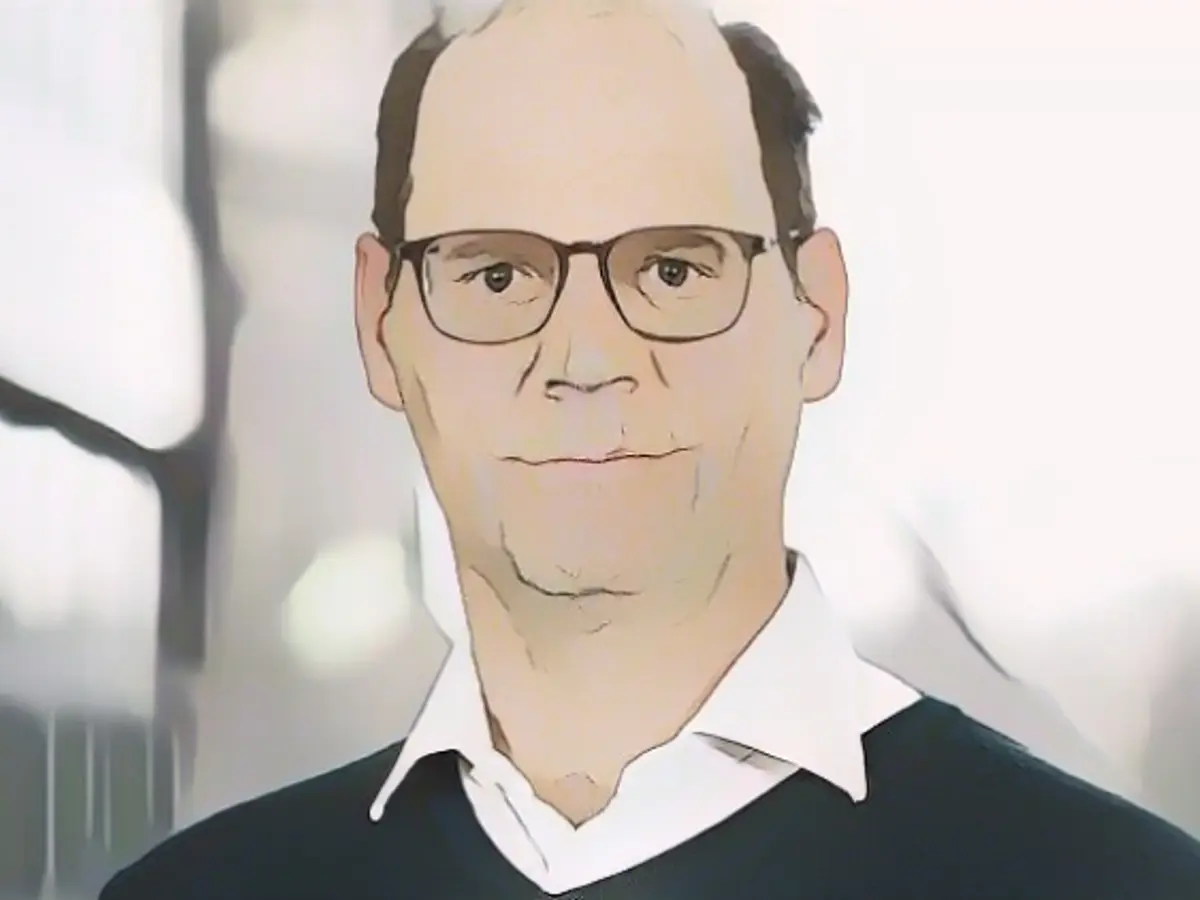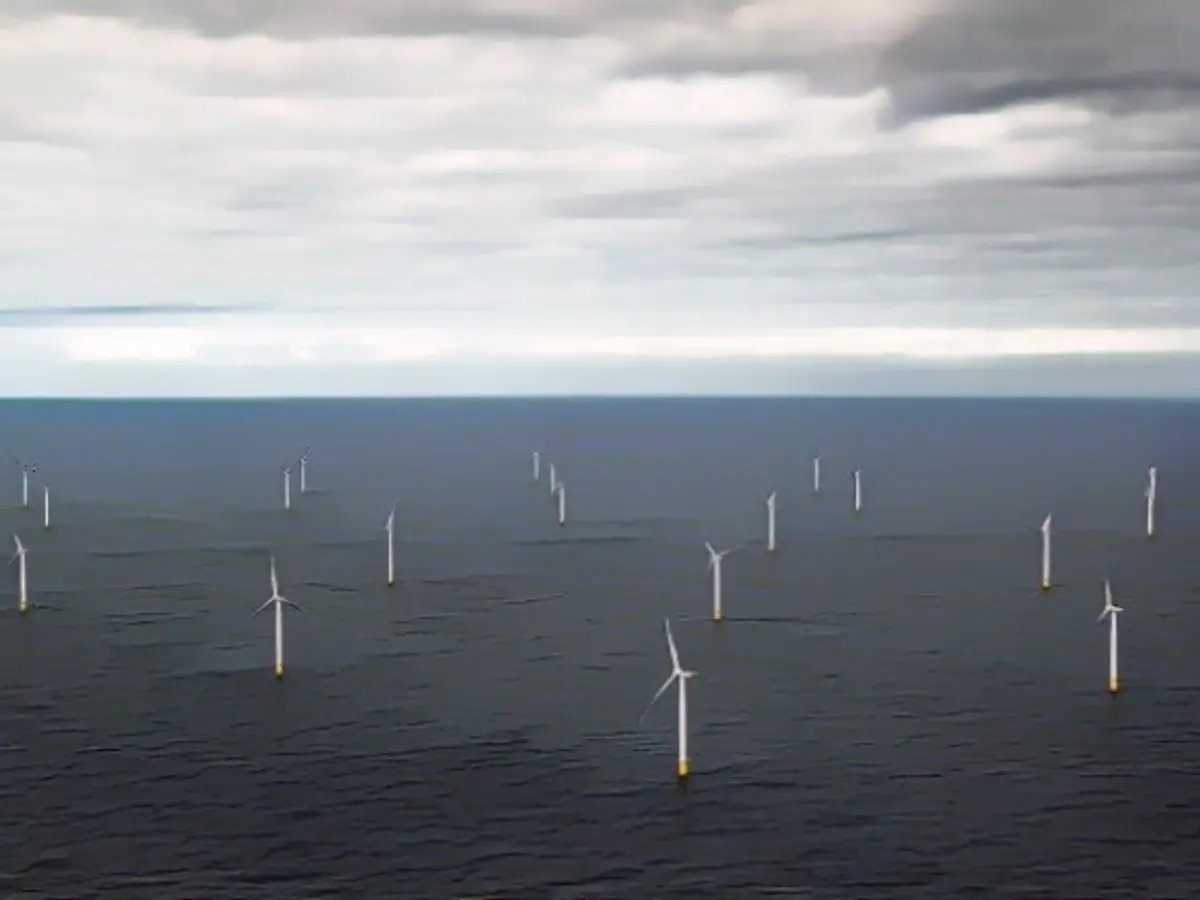"Wind industry can and must be self-sustaining"
Wind power is indispensable for the energy transition, but the industry is weakening. Should the state help to achieve the government's goals? "State aid" should only be a temporary solution, says Philipp Godron from Agora Energiewende.
Siemens Energy needs help because of the problems at Siemens Gamesa, Orsted - the world's largest wind project developer - is losing billions and is withdrawing from the USA. Is offshore wind power still a reliable part of the energy transition?
Philipp Godron: Yes, offshore wind power is an important part of a climate-neutral power supply. The advantage of these turbines is that they achieve high full-load hours. One gigawatt of installed capacity at sea can generate more and more continuous electricity than solar or onshore wind power. The German government has therefore increased the expansion targets for offshore wind power: from 8 gigawatts today to 30 gigawatts by 2030. By 2045, the target is 70 gigawatts.
So the massive problems of two big players are irrelevant?
The European wind industry has relatively continental roots. The manufacturers with the largest market shares are Vestas, Nordex, Enercon and Siemens Gamesa. These are all European manufacturers. There is also the American company GE Energy, which also has sites in Europe. All of these manufacturers have suffered from the slump in wind expansion in Europe - and very much so in Germany - due to insufficient tender volumes and lengthy approval procedures. As a result, several of these companies have experienced economic difficulties and some of them still do. As a result, they have reduced their production capacities. If individual companies are now experiencing problems, this is not good for competition and expansion for the time being. But that doesn't mean that there isn't a market of manufacturers who can meet the growing demand. The competition is closing the supply gap. However, this can lead to further delays in expansion.

Can the increased expansion targets even be achieved?
Yes, the targets set are ambitious. But the potential for offshore expansion is far from exhausted. There are further tendering rounds that can contribute to achieving the targets by 2030. The goal of achieving 80 percent renewable energy by then is ambitious, but fundamentally achievable if everyone involved pulls together. There are challenges, especially when it comes to increasing the installed offshore capacity from 30 gigawatts to 70 gigawatts. One bottleneck: the German sea area in which investments can be made is comparatively small. European cooperation is crucial here in order to plan and implement wind projects across national borders, taking into account nature conservation and shipping. Cooperation should not only cover expansion areas, but also the grid infrastructure.
What needs to happen now in order to get over the hump?
Since last spring, various packages of measures have been introduced with a focus on onshore wind power with the aim of overcoming obstacles and accelerating the expansion of wind power. Approval procedures have been streamlined, tendering volumes have been increased and more areas have been designated. There has already been some progress, for example, onshore wind power has seen an increase in approvals compared to previous years and an increase of over 50 percent in projects participating in tenders. This indicates a positive development, but further acceleration is required - especially as we are starting from a low level. The direction is right, but the speed does not yet correspond to the scale required to achieve the target. For offshore, it is crucial that the responsible authorities quickly define the sea areas for further projects and ensure the timely implementation of approved projects and the tendering of new projects.
Orsted has had to cancel two billion-euro projects in the USA. The costs could not be financed. Are the plants economically profitable?
In Germany, numerous companies are taking part in the tendering rounds for offshore wind power. They are prepared to make considerable payments in order to connect the wind farms to the German and ultimately European electricity grid. In principle, participation in the tenders indicates that investors see offshore projects as an attractive business model.
Nevertheless, Siemens Energy is negotiating aid with the German government. The energy sector in particular should be able to support itself.
The wind industry is a growth industry that must and can sustain itself in the long term in private-sector competition. It is certainly not an industry that must and should be permanently supported by state subsidies, whether from the European Union or the German government. Competition is also helpful in order to ultimately achieve attractive production prices and therefore low energy costs for us all. At the same time, the energy supply must be resilient. That is why it makes sense to secure additional production capacities for renewables in the current investment phase - which is also what the USA and China are doing. Wind power is a key technology that must remain in Europe.
Leon Berent spoke with Philipp Godron
This interview first appeared on capital.de
Siemens Energy is currently seeking aid due to the challenges at Siemens Gamesa. However, according to Philipp Godron, state aid should only be a temporary solution for the wind industry. Despite the problems faced by Orsted and Siemens Gamesa, offshore wind power remains an important part of a climate-neutral power supply, as it can generate more continuous electricity than solar or onshore wind power. The German government has increased the expansion targets for offshore wind power to 70 gigawatts by 2045, recognizing its potential for a self-sustaining energy transition.
Source: www.ntv.de








